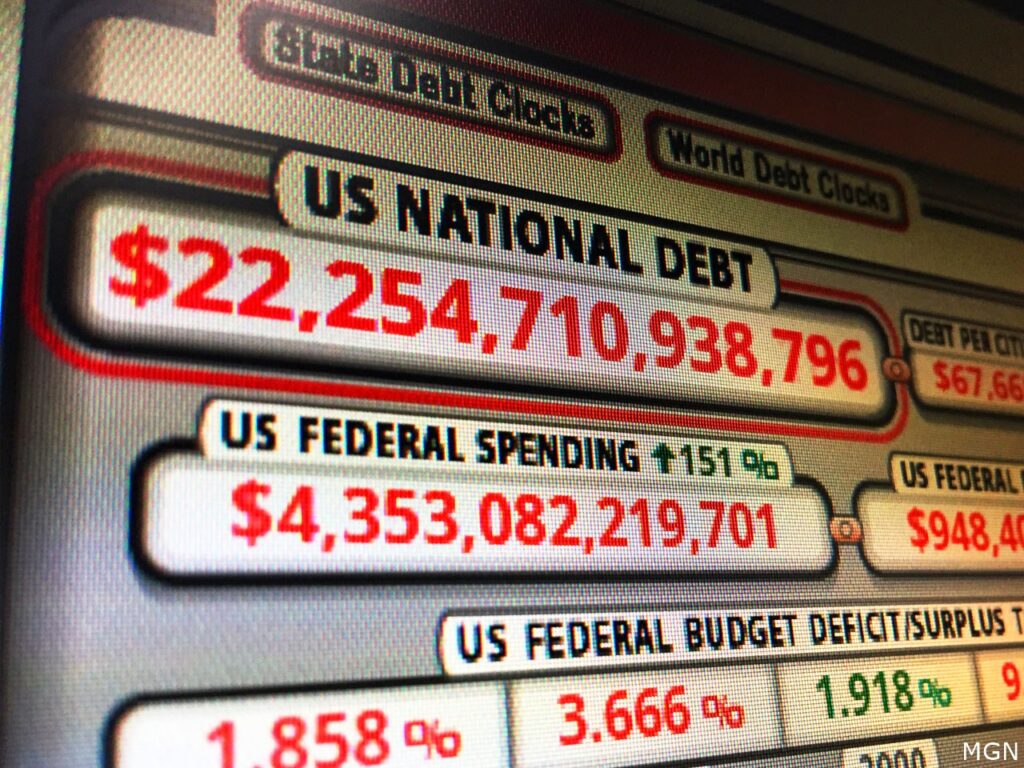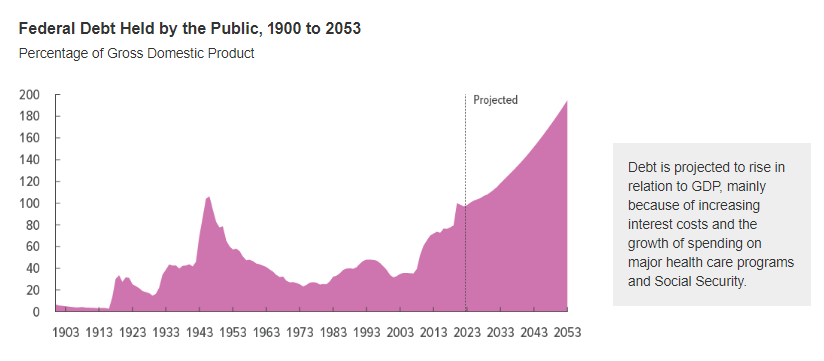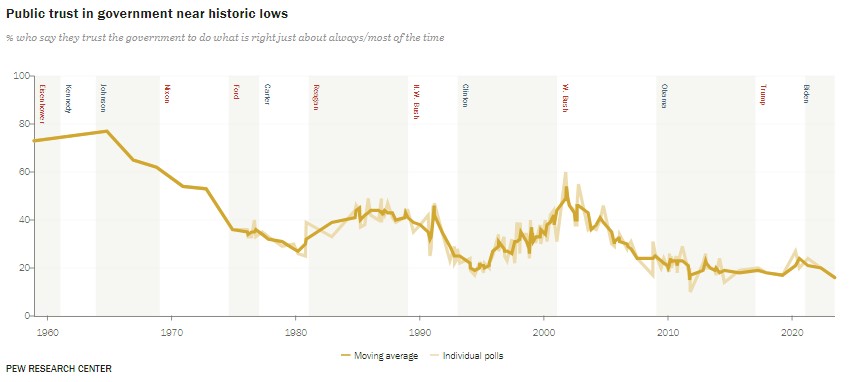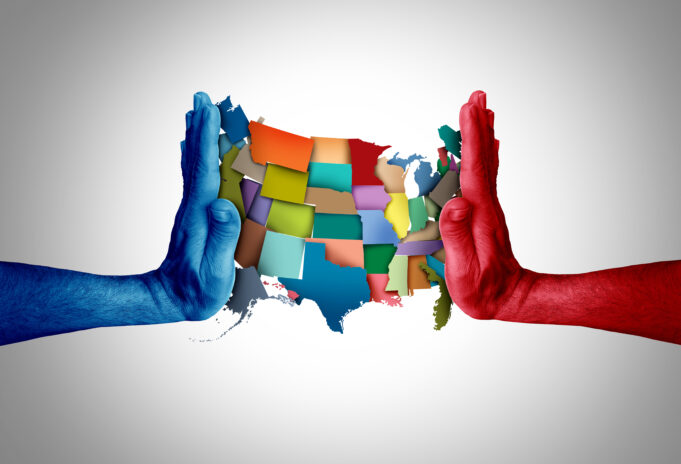“And the nations were angry, and thy wrath is come, and the time of the dead, that they should be judged, and that thou shouldest give reward unto thy servants…” —Bible (KJV), Revelation 11:18
“And every nation has a term. And when its term comes, they cannot remain behind the least while, nor can they precede it.” —Holy Qur’an Chapter 7:34. Maulana Muhammad Ali translation
As 2023 gives way to a new year in American politics, the implementation of policy through an angry and divided Congress hobbled by the demands of ideological differences, big money, and special interests, a toxic brew of incivility has developed. The result reveals to the world the decline of a global superpower whose mask of virtue, morality, and the rule of law has been removed.

Leaving the people, both domestically and internationally, in a state of confusion, uncertainty, and grief, from the highest levels of government to individual citizens and residents, dissatisfaction is creating change.
But even at the ballot box, efforts are once again ongoing to restrict voting rights, particularly for Black people in the South. And as the U.S. approaches the 2024 presidential election, voting rights are once again taking center stage.
According to a February 26, 2023, report on NPR’s Morning Edition, Supreme Court Justice Neil Gorsuch, a conservative appointed to the high court by then President Donald Trump, said in 2021, that he wanted to “flag” Section 2 of the Voting Rights Act of 1965.
“Gorsuch’s paragraph of a concurring opinion, which was joined by Justice Clarence Thomas, planted the seeds for an unusual argument that has emerged in an Arkansas redistricting case— that private individuals are not allowed to bring Section 2 lawsuits. And the case may soon find its way before the country’s highest court,” the NPR report said.
The case is related to Arkansas State Conference NAACP v. Arkansas Board of Apportionment, a case alleging racial gerrymandering in Arkansas, where a Trump-appointed judge, Lee P. Rudofsky, ruled that only the U.S. attorney general can file racial gerrymandering claims, but not private groups or individuals.

Racial gerrymandering is a practice of manipulating the boundaries of electoral districts to dilute the voting power of racial minority groups within a given voting jurisdiction. The district court’s decision was upheld on November 20 by the United States Court of Appeals for the Eight Circuit.
Regarding the John Lewis Voting Rights Advancement Act (H.R. 4), advocates of strengthening voting rights such as the Brennan Center for Justice, called on Congress to protect the freedom to vote against what it called “a wave of discriminatory state laws” in an article by Andrew Garber.
“The Supreme Court justified its decision to significantly weaken the Voting Rights Act by suggesting that race discrimination in voting was a thing of the past,” Mr. Garber wrote in his September 19 opinion piece. “That was clearly wrong at the time and it has only gotten worse since.
Discriminatory state voting laws are on the rise,” he said. The bill, sponsored by Representative Terri Sewell (D-Ala.), H.R. 4 passed in the House and was received in the U.S. Senate on September 9, 2021.
According to a statement by President Joe Biden on November 3, 2021, Senate Republicans blocked debate on the modified bill. The John R. Lewis Voting Rights Advancement Act of 2021 is a bill that aims to strengthen legal protections against discriminatory voting policies and practices and would modernize and revitalize the Voting Rights Act of 1965 and has been hampered by recent Supreme Court decisions.

NPR reported this year, on September 19, that with a divided Congress going into the 2024 presidential elections, Rep. Sewell was working to reintroduce the bill to shore up and expand the Voting Rights Act after the U.S. Supreme Court dismantled key provisions within it. In the interview, Sewell stated that Democrats would need to win back control of the House for it to have a real chance of becoming law.
“The whole movement for voting rights, we know that we can’t give up, that old battles have become new again, even though we thought that this battle for voting rights was won on a bridge in my hometown,’” Rep. Sewell said in the NPR interview, referring to the violent crackdown against Blacks who peacefully demanded the right to vote—also known as Bloody Sunday—by the State of Alabama on the Edmund Pettus Bridge in 1965.
Is America broke?
According to USA Facts, between 1940 to 2021, America’s debt ceiling rose from approximately $49 billion to over $31 trillion. According to the Congressional Budget Office (CBO), “The debt limit—commonly called the debt ceiling—is the maximum amount of debt that the Department of the Treasury can issue to the public or to other federal agencies,” the non-partisan analysis office announced on its website last May.

“The amount is set by law and has been increased or suspended over the years to allow for the additional borrowing needed to finance the government’s operations.”
The CBO also announced in December 2021, that Congress raised the debt limit by $2.5 trillion to a total of $31.4 trillion. The limit was reached on January 19, 2023, and the Treasury announced a “debt issuance suspension period” and began using “extraordinary measures” to borrow additional funds without breaching it.
The office also noted that “Until lawmakers enact legislation to raise or suspend the debt limit, the Treasury must use its cash balance and the available extraordinary measures to fund ongoing government activities.
The Treasury can draw down its cash balance to extend the time that it can continue financing government operations without issuing debt. On April 30, 2023, the Treasury had $316 billion in cash,” it said last May.
As the new fiscal year approached, then Speaker of the House, Kevin McCarthy (R-Calif.), tried in vain to negotiate a budget agreeable to both parties, but to no avail.
According to Roll Call, as Speaker McCarthy worked to appease far-right conservatives within his party, they demanded additional budget cuts and caps on federal spending. The fiscal year begins every October 1, and The Budget and Accounting Act of 1921 requires the president to submit a consolidated federal budget to Congress every year for approval before it can be signed into law.
“The one thing you’ve got to realize, whenever you put a cap, that’s the ceiling. We can always spend less. I’ve always advocated for spending less money,’” McCarthy said in the Roll Call article on June 7.
With far-right factions within his party threatening a government shutdown if its demands were not met, Speaker McCarthy and cross-over Republicans joined with Democrats to pass a Continuing Resolution (CR), granting the government 45 extra days of funding to reach an agreement.
The House then voted 216-210, including eight Republicans and 208 Democrats, to remove him as Speaker. The first House Speaker in history to be ousted in the middle of a congressional term, McCarthy announced that he would leave Congress entirely by December 31, creating further disarray for House Republicans.
According to NBC News, “McCarthy’s timeline means he would depart before the Feb. 13 special election to replace expelled Rep. George Santos, R-N.Y., further cutting the Republican majority to 220 members to 213 Democrats. That means House Republicans could lose just three votes before they require Democratic support to pass measures.”
An October surprise?
As political gridlock and fierce intra-party fighting led to Speaker McCarthy’s ouster on October 3, four days later, Hamas launched a surprise attack from the Occupied Gaza Strip into Israel, on October 7, leading to more chaos and confusion in Washington.
This is splitting supporters of President Joe Biden and the Democrats between their unquestioning support for Israel’s vengeance on one side and those accusing his administration of endorsing ethnic cleansing and genocide on the other. The pace of America’s political unraveling has increased both domestically and internationally.
With the U.S. heavily embroiled in conflicts from Eastern Europe to the Middle East, and the Far East, a new economic reality is emerging in the name of BRICS (Brazil, Russia, India, China, and South Africa), a group of nations establishing an alternative to the U.S. dollar and the Euro as the world’s reserve currency. Having the potential to undermine the American economy, additional countries in South America, Africa, and Southwest Asia have agreed to join BRICS and the list is growing.
According to an article by Melissa Pistilli, in Investing News Network, “the BRICS nations have a slew of reasons for wanting to set up a new currency. Recent global financial challenges and aggressive U.S. foreign policies have prompted the BRICS countries to explore the possibility. They want to better serve their own economic interests while reducing global dependence on the U.S. dollar and the euro.”
“What progress has been made?” Pistilli asked in her November 23 analysis. “During the 14th BRICS Summit, held in mid-2022, Russian President Vladimir Putin said the BRICS countries plan to issue a “new global reserve currency,” and are ready to work openly with all fair partners.” To date, Argentina, Egypt, Ethiopia, Saudi Arabia, and The United Arab Emirates are preparing to join the bloc in January, with 20 more countries having submitted their applications to join in the near future.
Stating that the full impact of a new and stable BRICS-oriented currency is unknown, Pistilli surmised that it would likely lead to a further decline in the dollar’s value, causing an economic crisis in U.S. households. “Aside from that, this new currency could accelerate the trend toward de-dollarization,” she said.
The unraveling quickens
Where must the Black man and woman turn for justice and the redress of grievances, if as citizens of America, the people fail in their duty—first to self and then toward one another? Is it right or proper to place this burden on the failing institutions of government, school systems, civic institutions, or even houses of worship if the people fail to look inwardly?
According to a 2019 article by the Pew Research Center, many Americans saw levels of trust declining throughout the country, whether in government or each other and the numbers have been worsening since.
“Three-quarters of Americans say that their fellow citizens’ trust in the federal government has been shrinking, and 64 percent believe that about peoples’ trust in each other.” The center also noted in September 2023 that between 1958 and 2023, public trust in government has dropped to a new low.
Their research reported:
“When the National Election Study began asking about trust in government in 1958, about three-quarters of Americans trusted the federal government to do the right thing almost always or most of the time. Trust in government began eroding during the 1960s, amid the escalation of the Vietnam War, and the decline continued in the 1970s with the Watergate scandal and worsening economic struggles.
Confidence in government recovered in the mid-1980s before falling again in the mid-1990s. But as the economy grew in the late 1990s, so too did confidence in government. Public trust reached a three-decade high shortly after the 9/11 terrorist attacks but declined quickly thereafter,” the study said.
“Today, 25 percent of Democrats and Democratic-leaning independents say they trust the federal government just about always or most of the time, compared with eight percent of Republicans and Republican leaners. Democrats report slightly less trust in the federal government today than a year ago; Republicans’ views have been relatively unchanged over this period,” the Pew Research Center said on its website.
As 2023 comes to an end, 2024 portends to be a year of increasingly divisive and volatile party politics as the prospects of “wars and rumors of war,” political posturing, economic insecurity, and the likelihood of civil and social unrest continue to fester against the backdrop of an upcoming presidential election that may see the return of former President Donald J. Trump as the Republican front-runner.
Dissatisfaction, confusion, highly contentious and competing interests and rapidly evolving technology are all contributing to a modern-day “Tower of Babel.”
In his 58-part lecture series, “The Time and What Must be Done,” webcast from 2013-2014, the National Representative of the Most Honorable Elijah Muhammad and the Nation of Islam, the Honorable Minister Louis Farrakhan, said in part 12 of the series that the decline and fall of past civilizations, such as ancient Babylon, should serve as a warning to America today as the year closes out.
“It is our sacred duty to warn America that the term, a fixed term of her power, to exercise authority and rule, not only over her own citizens, but over the peoples of the earth, that term is fast coming to an end,” Minister Farrakhan said as a warning to those who would take heed.
“A modern Daniel has arisen out of the Black man and woman of America, and he is telling you on the wall of your security, it is written: “Your kingdom has been weighed in the balance and found wanting.”













